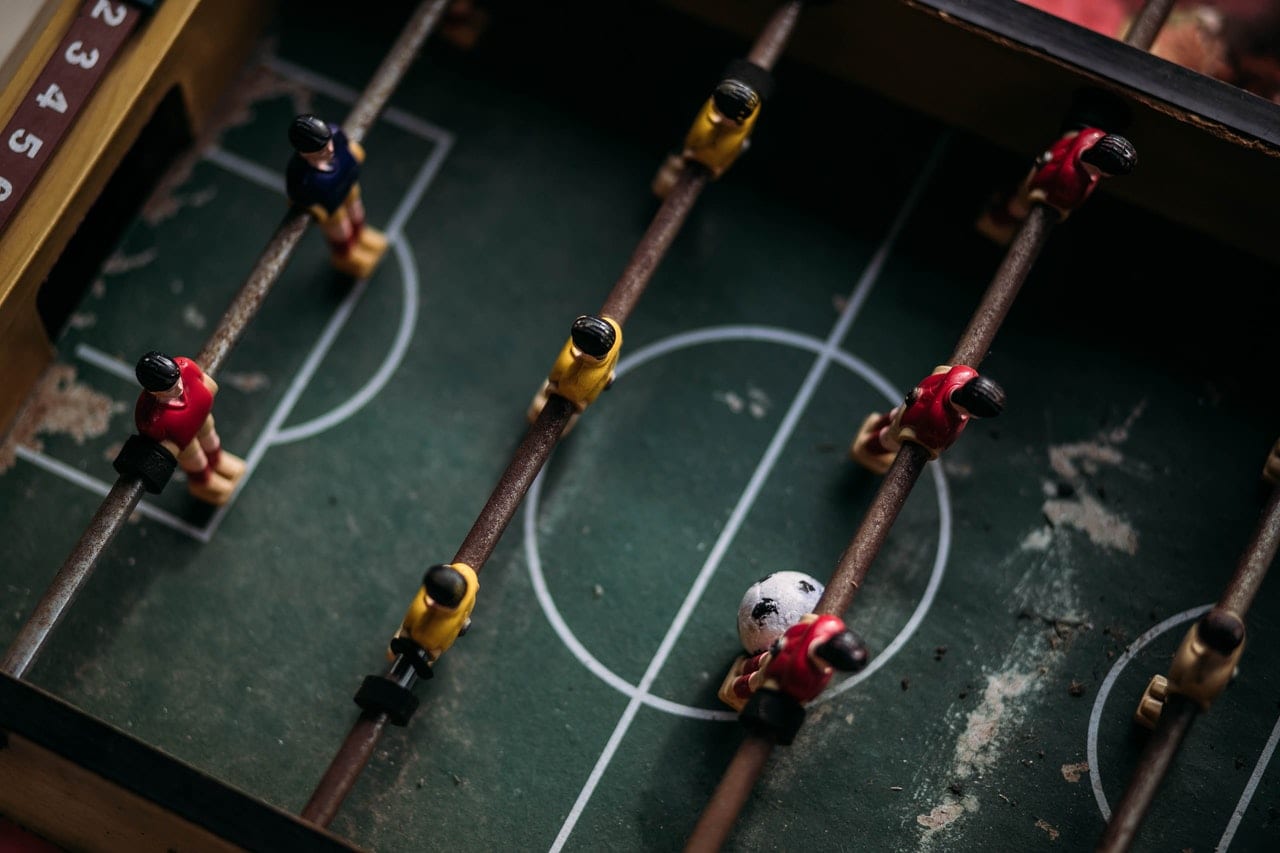RFC Seraing SA v. FIFA, C-600/23, Judgment of 1 August 2025, ECLI:EU:C:2025:617 (Seraing Judgment)
1. Why is the case interesting?
The wider interest of the Seraing Judgment lies primarily in the extent of reviewability of CAS awards by EU-based national courts when it comes to rights falling within EU public policy.
A lot has already been said and written about said judgment, specifically on its potential effect on CAS arbitration and the international dispute resolution more generally. For a more detailed timeline of the case since the beginning you can see my earlier note on the Swiss Federal Supreme Court (SFT) judgment against the Seraing CAS Award; see also TAS 2016/A/4490).
Very briefly, the case started in 2015 when FIFA enacted its ban on Third Party Ownership (TPO) agreements arguing that they threaten, among others, integrity, club independence and fairness. FIFA then imposed a ban imposed on the Belgian Club Seraing, which was partially confirmed – following a detailed review of the compatibility of the TPO regulations with EU law – by the CAS in the Seraing CAS award and the SFT.
Seraing also opened proceedings before the Belgian courts, invoking a breach of EU competition law and EU fundamental freedoms. In 2023, the Belgian Court de Cassation filed a request for preliminary ruling to the Court of Justice of the EU (CJEU, the Court), on the extent to which national courts can review CAS awards when compulsory arbitration is involved and EU public policy rights are at stake. AG Tamara Ćapeta issued her opinion in January 2025 (see my note on the opinion here) and the Court issued its decision on 1 August 2025. Below are some core elements of the judgment, followed by considerations on the potential implications, limitations and perspectives for CAS and the international sports dispute resolution system more generally.
2. Compulsory arbitration and effective judicial review: some not so new findings
In essence, most of the findings of the Seraing Judgment are not new and have already been addressed in previous judgments, either by the CJEU itself or (based on a different legal framework) by the European Court of Human Rights (ECHR).

Compulsory Arbitration – Is it compatible with EU law?
In its analysis, the Court recalls that recourse to arbitration is possible insofar as it is consistent with EU public policy, along with the possibility to obtain interim relief and to have a reference made to the Court of Justice for a preliminary ruling. Similar to other judgments (e.g. Pechstein ECHR Judgment, Semenya ECHR Judgment, ISU Judgment), the Court confirms the legitimacy of compulsory arbitration in some types of CAS proceedings, highlighting its significant advantages (see e.g. Seraing, §94, with reference to the European Superleague Company (ESL) Judgment, §75 and §142).
Similar to other judgments (e.g. Semenya ECHR Judgment and the Mutu & Pechstein ECHR Judgment) the CJEU finds that compulsory CAS arbitration entails consequences (see the reference to the Mutu & Pechstein ECHR Judgment in Seraing, §80), only that in this case they are linked to the effective judicial review of rights falling within EU public policy rather than the enhanced institutional and procedural guarantees or the level of review of CAS awards by the SFT based on Article 6 of the Convention.
Effective Judicial Review: Must EU-based courts be able to review CAS awards in cases involving EU public policy?
Similar to the ISU Judgment (Case C-124/21 P), the Seraing judgment deals with the autonomy of sports federations and touches upon its cardinal principle of effective judicial protection. In both judgments, the Court acknowledged the numerous advantages linked to a centralized sports arbitration system in terms of consistency, integrity and efficiency, even if said advantages – and the autonomy of arbitration – cannot override the primacy of effective judicial protection within the EU.
The Court further recalls that effective judicial protection by member states (Art. 19(1) TEU) obliges EU national courts to interpret and apply EU law and meet effective judicial protection standards, while the right to an effective remedy (Art. 47 Charter) means effective judicial review of acts infringing rights or freedoms conferred by EU law.
Importantly, in the present case, the Court firmly (and rightly, in my opinion) departs from the AG Ćapeta Opinion in the scope of rights amenable to review by the EU national courts, limiting them to the core of what constitutes EU public policy, i.e., competition law and fundamental freedoms (therefore not all EU-based rights). As such, this is nothing new or revolutionary (so far).
Furthermore, like in the Semenya ECHR judgment, the focal point for the departure from the virtually all-mighty autonomy of arbitration is the compulsory character of certain sports arbitration disputes / a system requiring compliance for participation in competitions.
The Court therefore considers that in cases where CAS arbitration is imposed upon the parties, effective judicial review by EU-based national courts should be possible when the case touches upon a sports-related economic activity within the EU. National courts could also have the right to grant interim relief to comply with such effective judicial protection(§ 106 f.).
3. So what is new? Scope of review of EU national courts
What powers do EU-based courts have when reviewing CAS awards?
The novelty lies not so much in the control of compatibility with the EU public policy as such – which is already possible through the New York Convention of 1958 (NYC58) public policy angle – but rather its scope and the powers conferred to national courts. Accordingly, the Court holds that EU-based national courts could not be limited to merely determining whether such infringement of EU public policy exists (or not) and awarding damages for the harm caused: they should also have the power to invalidate any rules that hinder such effective judicial protection as regards individuals, within the framework of their respective powers and in accordance with the applicable national provisions (Seraing, §102-103).
National courts will therefore be able to review the interpretation of those principles or provisions that fall within the boundaries of EU public policy, the legal consequences and the legal classification given, to the facts as they were established and assessed by the arbitration body (Seraing, §86 and §95).
Interaction with International Arbitration Law – How does the New York Convention (NYC 1958) fit with EU principles of effective judicial protection?
When it comes to the application of the NYC58 to compulsory CAS arbitration, the Court finds a correlation (“goes hand in hand”) rather than a conflict between the effective judicial review principle and the review available under the NYC58 of the compatibility of EU public policy through its public policy angle (cf also the Eco Swiss Judgment, §37).
Importantly, however, the Seraing judgment concludes that a national rule granting res judicata effect to a final arbitral award (valid only between the parties) and the ensuing probative value of the award (towards third parties) should be disregarded in the name of effective judicial protection under EU law (Seraing, §120).
4. Not a full / de novo review – limited by the factual findings of the CAS award
Notwithstanding the enlarged review mentioned above, national courts will still be bound by the factual findings established by the arbitral tribunal and the national court will not proceed to a de novo review: This means that, in the case at hand, the Belgian court will have to determine the validity of the TPO rules based on the factual findings as they were established in the CAS Award.
It is noteworthy that the CAS panel in the Seraing CAS Award (composed of three eminent EU-qualified CAS arbitrators) dedicated a large part of its analysis to the compatibility of the TPO ban with EU competition law and the fundamental freedoms falling within EU public policy. Interestingly, the CAS award included several factual findings that will eventually bind the Belgian court (c.f. §106 of the Seraing CAS Award, where the Panel considered that the Club had not adduced any convincing element to refute the TPO regulations’ legitimate objectives raised by FIFA).

5. Implications, perspectives and concluding remarks
Overall, the Seraing Judgment essentially confirms and builds upon the ISU Judgment, while it departs from AG Ćapeta’s opinion on the scope of the rights that may be reviewed (re-opened) by EU national courts, limiting said control to the hard core of what constitutes “EU public policy”. In this regard, it seems to somehow dilute the internationally recognized principle of res judicata effect through the enhanced review of EU public policy principles, even though not completely undermining the principle of arbitration autonomy. By so doing, it incorporates the principle of effective judicial review into the sports arbitration system, when arbitration is compulsory and for the specific category of disputes that touch upon EU public policy.
For this reason, and notwithstanding the enlarged review by national courts, the Seraing Judgment has a relatively limited practical scope within the wide range of CAS disputes currently being decided before the CAS, as most CAS cases are either non-EU-law-related or fall outside the compulsory arbitration considerations of the Court.
Still, for the scope of disputes covered by the Seraing Judgment, the main risk is the delay in finality and the potential fragmentation of the international sports dispute resolution system, the advantages and efficiency of which have also been highlighted not only by the CJEU in this judgment but also by the ECHR (see also my note on the Semenya Grand Chamber Judgment).
To the extent that CAS arbitrations have their seat in Lausanne, Switzerland, the courts of which cannot file a request for preliminary ruling before the CJEU, the offer of an alternative seat to an EU country could offer some advantages. It has been suggested (and already adopted by UEFA in certain types of disputes following the ISU Judgment) to amend Article R28 of the CAS Code and allow for an alternative CAS seat in an EU member state (e.g. in Dublin as an English-speaking EU member state) for cases falling within the scope of the Seraing Judgment. In such a case, it should be incumbent upon the parties to choose an EU seat or a Swiss seat for their CAS arbitration. If the parties still opt for a seat in Switzerland, with the efficiency and finality advantages linked thereto, the compulsory element – which plays a crucial role in the considerations of the Court regarding the extent of review – would likely lose some of its relevance.
Since the arbitration seat is not linked to the physical hearing location, no physical move from Lausanne would be needed for the CAS. If such alternative seat is e.g. Dublin (as in the case of UEFA), the Irish High Court (in lieu of the SFT) would be able to formally review the CAS award and potentially file requests for preliminary rulings directly to the CJEU. As such, the parties would naturally seize the courts of that EU state rather than courts in multiple jurisdictions.
All in all, the exact depth of scrutiny by EU national courts will need to be tested in practice. When arbitration is compulsory and the questions raised touch upon the scope mentioned in the Seraing Judgment, the parties’ choice of arbitrators with deep EU law knowledge (from among the CAS list of arbitrators), will be key in order to ensure that awards are resistant to subsequent national court review.







